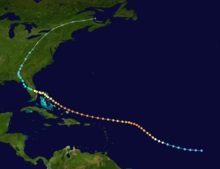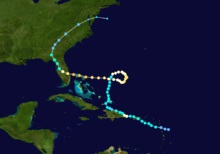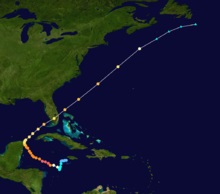Go Lean Commentary
So far this series on Refuse to Lose have established – (according to the previous blog-commentary):
“The practice of U.S. cities eschewing Columbus Day – because of the bad history associated with the Spanish Explorer’s atrocities – to celebrate Indigenous Peoples’ Day began in 1992 …”
 See what we did there?
See what we did there?
We warmed you up to the idea that “All Lives Matter, Yes, but oppressed groups need to be recognized and commiserated for the hurt that they have endured”.
And you bought it – “hook, line and sinker”.
We just accomplished an informal reconciliation. Now, it is time to pursue a formal reconciliation. (We have Indigenous People and oppressed people in the Caribbean too).
This is a mission of the roadmap embedded in the 2013 book Go Lean…Caribbean. The book introduces the strategy of impaneling Truth and Reconciliation Commissions (TRC) to address age-old (and modern) grievances.
This is part of the new attitude – community ethos – about winning-and-losing . The historicity of the Caribbean is that some demographics won – European Imperialists and loyalists – while others lost.
The human psyche is consistent; when we have been victimized, we want everyone to remember. But, when we have been the perpetrator – the bully – then we want everyone to forget. This applies to individuals and nations alike. – previous Go Lean commentary.

To make progress in society, there must be a new attitude now. one is for the Greater Good; we want most people to win and few to lose. We want a …
Refusal to lose
That previous blog-commentary defined this community ethos as a commitment by a group or society to the values of quality, success and winning.
This commentary is a continuation of this series on the Refuse to Lose ethos; this is Part 3-of-6. The full series is cataloged as follows:
- Refuse to Lose: Lesson from Sports
- Refuse to Lose: Remediating ‘Columbus Day’
- Refuse to Lose: Introducing Formal Reconciliations
- Refuse to Lose: Despite American Expansionism
- Refuse to Lose: Canada’s Model of Ascent
- Refuse to Lose: Direct Foreign Investors Wind-Downs
This is not the first time this commentary have addressed ‘reconciliations’. These points have been detailed in many previous Go Lean commentaries; see here:
| European Reckoning – Christianity’s Indictment The Church failed in its job to be the moral compass for the many European empires that have wielded absolute power on the planet. The bad result has been Slave Trade & Slavery, Colonialism and World Wars. These atrocities yielded millions and maybe even billions of victims. ‘White’ is NOT right. There is the need to reconcile that. |
| A Lesson in History: Jonestown, Guyana 40 years ago – 1978 – a religious atrocity transpired on Caribbean soil; this was the mass-murder/suicides in Jonestown, Guyana of almost 1000 people. Where were the societal stakeholders in this crisis, those charged with the duty to serve and protect. What have we learned? What reforms, if any, have we enacted? |
| Colonialism’s Bloody History Revisited There has been a bloody history, tied to European and American colonialism. We must learn from this history; there must be a strenuous effort to dissuade societal defects and orthodoxy. Truth of the matter, colonialism is not dead with 18 Overseas Territories in Caribbean. |
| ‘Loose Lips Sink Ships’ – Leaders Undermine Tourism Political and religious leaders in Caribbean communities are projecting “a Climate of Hate” towards certain minority groups. This is so bad that it undermines the tourism products and community economics. Reconciling the pasts allows for better economics in the future. |
| Waging a Successful War on Orthodoxy It takes a real battle to undo the standards and orthodoxy – many of them religious and colonial – introduced and implemented in society. Some good have come from these practices … and some bad. There needs to be a formal reconciliation of the Good, Bad and the Ugly. |
| Rwanda’s Catholic bishops apologize for genocide The Church was not a force for moral good in modern society … in Africa or the Caribbean. The Bishops in Rwanda owned up and apologized for their complicity in their 1990’s genocide. This is an attempt to reconcile the failings of the past. |
| Repenting, Forgiving and Reconciling the Past Christendom has a sullied past! For example, the historicity of the Spanish Inquisition is inexcusable. Yet there was a town in Spain that continued with the name “Castrillo Matajudios” — which means “Camp Kill Jews”, which they did. How was this community repent, forgive and reconcile from such a bad legacy? For one, change the name. The town has reverted back to its original name “Castrillo Mota de Judios” (“Jews’ Hill Camp”). This proves that reconciliation is more than just mental acknowledgement; many times heavy-lifting ust also be expended. |
| In Search Of The Red Cross’ $500 Million In Haiti Relief The Red Cross is a Disaster Management organization; they abused their power by collecting $500 Million for Haiti’s Earthquake Relief/Recovery and misappropriating the funds. Where did the money go? Can we finally get an answer? |
 The Caribbean member-states need societal progress; so we must adopt new attitudes that shows that we recognize that old attitudes were bad. This is how we pursue the Greater Good. We want a Refusal to Lose, a Win-Win; we want most people to win and few to lose.
The Caribbean member-states need societal progress; so we must adopt new attitudes that shows that we recognize that old attitudes were bad. This is how we pursue the Greater Good. We want a Refusal to Lose, a Win-Win; we want most people to win and few to lose.
Whew! This is heavy, just thinking about it. How do we get started?
This Go Lean roadmap describes the Way Forward, the heavy-lifting for elevating Caribbean society in the future and to reconcile their past failings. Among the 370-pages of the Go Lean book are the turn-by-turn instructions on “how” to adopt the new community ethos of reconciliation. Consider the headlines, summaries and excerpts here on how the region can better Manage Reconciliations in the Caribbean eco-system, in the domestic homeland and in the Diaspora (Page 34):
10 Ways to Manage Reconciliations
| 1 | Lean-in for the Caribbean Union Trade Federation (CU) This treaty allows for the unification of the region into one market, expanding to an economy of 30 member-states of 42 million people. This accedence creates a “new” land of opportunity, so after so many decades of abandonment, the CU will “flash the signs” of “Welcome Home” to its far-flung Diaspora. But “old parties” returning can also open “old wounds” therefore it is a mission of the CU to facilitate reconciliations, much like the model in South Africa, so as to assuage these Failed-State indicators/threats: a). “Revenge seeking” groups and b). Group Grievances |
| 2 | TRC – Cuba Cuba, the largest island in the Caribbean, had an armed revolution, conducted by leader Fidel Castro, that started in July 1953 and finally ended with the ouster of dictator Fulgencio Batista on 1 January 1959. Castro revolutionary government later reformed along communist lines, leading to a vast exodus in the subsequent years since. The Cuban Diaspora is estimated to amount to over 1.5 million people and $1.5 Billion in annual remittances to the island. A goal of the CU is to invite many of the Cuban Diaspora and exiles back to the island. (Many of whom settled nearby in Miami and want to return). After the Castro Brothers, there will be the expectation of reparation and reconciliation. So the CU will convene a Truth & Reconciliation Commission to bring resolution to many issues from the revolution, socialist nationalization, previous coup attempts and the Batista dictatorship. There may be the expectation of reparations. |
| 3 | TRC Haiti and Neighbors Haiti has the unique history of declaring independence since the 1790’s and ever since has had to contend with foreign invaders, internal dissension, domestic terrorism and conflict with its neighbor, the Dominican Republic ([see Page 306 for] Appendix TD). The memory and victimization of these contentions are long and has the potential for spontaneous conflict. Haiti has the highest indicators (#7 [see Page 271 for Appendix F]) on the Failed-State Index of any state in the entire region. In addition to the CU providing special status and protections for repatriates, the CU must convene a TRC to bring resolution to the grievances of the past. |
| 4 | International Tribunals – War Crimes – Human Rights Watchers |
| 5 | Caribbean Court of Justice |
| 6 | Government Debt Buybacks The CU seeks to buyback (pay-off) many of the international debts incurred by the member states. This process, part of a financial reconciliation, will require a detailed forensic audit of the disbursements and accountabilities of monies. |
| 7 | International Grants / Loan Forgiveness |
| 8 | CU Foreign Policy/Trade Missions |
| 9 | International Court Judgments Some foreign courts have ruled on cases involving Caribbean states, assessing judgments accordingly, (ie Cuba – $6 Billion in US courts). The CU will pursue negotiations for compromised settlements to clear the docket of these cases. |
| 10 | Repatriation After Abandonment |
These aspirations are not just “pie in the sky”. This was done, successfully in South Africa. We have that model by which to follow. See the Appendix VIDEO below.
So it is conceivable, believable and achievable to think that we can reconcile our bad Caribbean historicity. Yes, while we cannot change the past, we can apply lessons-learned and change the future. We can move forward, upward, onward together …
… and we have some heavy-lifting to do; consider these examples (click on the links for the Way Forward for these issues):
So ‘Yes We Can’ …
Refusing to Lose is a necessary ethos for the Caribbean Way Forward to start winning, after so many centuries of losing. Let’s put the past behind and move forward.
Let’s all lean-in and foster reconciliations, so that we can all Refuse to Lose; this is the right community ethos to elevate our society to be a better homeland to live, work and play. 🙂
About the Book
The book Go Lean…Caribbean serves as a roadmap for the introduction and implementation of the technocratic Caribbean Union Trade Federation (CU), for the elevation of Caribbean society – for all member-states. This CU/Go Lean roadmap has these 3 prime directives:
- Optimization of the economic engines in order to grow the regional economy to $800 Billion and create 2.2 million new jobs.
- Establishment of a security apparatus to ensure public safety and protect the resultant economic engines.
- Improve Caribbean governance to support these engines, including a separation-of-powers between the member-states and CU federal agencies.
The Go Lean book provides 370-pages of turn-by-turn instructions on “how” to adopt new community ethos, plus the strategies, tactics, implementations and advocacies to execute so as to reboot, reform and transform the societal engines of Caribbean society.
Download the free e-Book of Go Lean … Caribbean – now!
Who We Are
The movement behind the Go Lean book – a non-partisan, apolitical, religiously-neutral Community Development Foundation chartered for the purpose of empowering and re-booting economic engines – stresses that reforming and transforming the Caribbean societal engines must be a regional pursuit. This was an early motivation for the roadmap, as pronounced in the opening Declaration of Interdependence (Pages 12 – 13):
xi. Whereas all men are entitled to the benefits of good governance in a free society, “new guards” must be enacted to dissuade the emergence of incompetence, corruption, nepotism and cronyism at the peril of the people’s best interest. The Federation must guarantee the executions of a social contract between government and the governed.
xiii. Whereas the legacy of dissensions in many member-states (for example: Haiti and Cuba) will require a concerted effort to integrate the exile community’s repatriation, the Federation must arrange for Reconciliation Commissions to satiate a demand for justice.
xvi. Whereas security of our homeland is inextricably linked to prosperity of the homeland, the economic and security interest of the region needs to be aligned under the same governance. Since economic crimes … can imperil the functioning of the wheels of commerce for all the citizenry, the accedence of this Federation must equip the security apparatus with the tools and techniques for predictive and proactive interdictions.
xxiv. Whereas a free market economy can be induced and spurred for continuous progress, the Federation must install the controls to better manage aspects of the economy: jobs, inflation, savings rate, investments and other economic principles. Thereby attracting direct foreign investment because of the stability and vibrancy of our economy.
Sign the petition to lean-in for this roadmap for the Caribbean Union Trade Federation.
—————–
Appendix VIDEO – Truth Justice Memory: South Africa’s Truth and Reconciliation Process [Introduction] – https://youtu.be/W3taLI3moaM
Justice Reconciliation
Posted Apr 4, 2014 – The TRC provided an opportunity for ordinary South Africans to take the centre stage, to share their stories of suffering and sacrifice. How can we, years later, use this legacy in the building of a generation of reconciling South Africans? This “first-of-its-kind” course aims to expose learners to the TRC event in a sensitive but forthright manner. Twelve DVD clips, each about 20 minutes in length, cover a series of important aspects of the TRC’s work. The accompanying teacher’s guide contains twelve corresponding chapters, complete with content summary, key questions, tasks for learners and teachers as well as additional sources.
- Category: Nonprofits & Activism
 Today is the Monday closest to October 12 – Day of Discovery by Christopher Columbus – so it is a day set aside as a Holiday in many places. But alas, there have been many communities that have remediated their historical appreciation for Christopher Columbus.
Today is the Monday closest to October 12 – Day of Discovery by Christopher Columbus – so it is a day set aside as a Holiday in many places. But alas, there have been many communities that have remediated their historical appreciation for Christopher Columbus.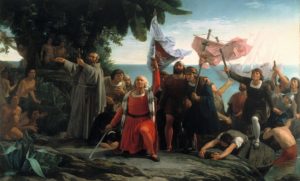
 The United States of America had been a majority White (European) country for its
The United States of America had been a majority White (European) country for its  ‘Winning and Losing’ is a reality in life …
‘Winning and Losing’ is a reality in life …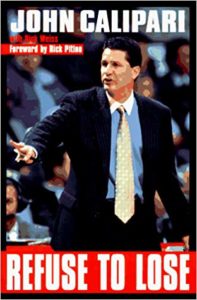
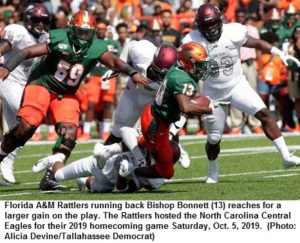
 Education is all the rage for elevating individuals in society … to be more prosperous, to earn more and have a better life. This is why we send children to school starting at Age 5; and encourage them to work hard and do their homework …
Education is all the rage for elevating individuals in society … to be more prosperous, to earn more and have a better life. This is why we send children to school starting at Age 5; and encourage them to work hard and do their homework … “Of the many factors holding back young home buyers … none looms larger than the recent explosion of college debt”.
“Of the many factors holding back young home buyers … none looms larger than the recent explosion of college debt”.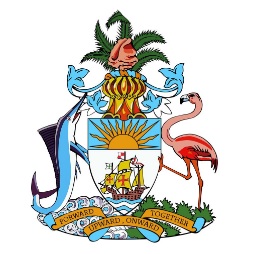 This Caribbean community should now be saying: “Give me my money!”
This Caribbean community should now be saying: “Give me my money!”

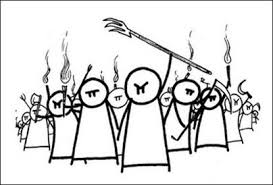







 The need for justice can never be undermined, undervalued or questioned.
The need for justice can never be undermined, undervalued or questioned.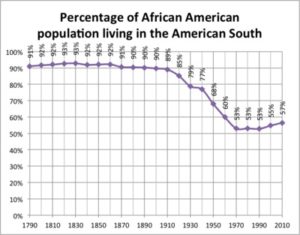 … the movement of 6 million
… the movement of 6 million 

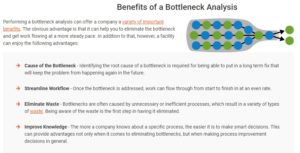
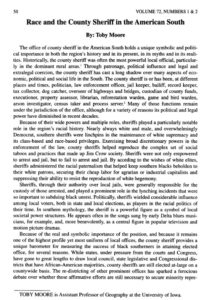
 There are a number of phases of post-Hurricane activities:
There are a number of phases of post-Hurricane activities: A senior official in the administration of President Donald Trump has been quoted by CBS News as saying that the US will not be granting protected status to people fleeing hurricane destruction in Bahamas.
A senior official in the administration of President Donald Trump has been quoted by CBS News as saying that the US will not be granting protected status to people fleeing hurricane destruction in Bahamas. The United States cannot allow China to exploit the recovery and rebuilding of The Bahamas after Hurricane Dorian for its own nefarious purposes and gain “a foothold just 50 miles from the coast of Florida”, U.S. Senator Marco Rubio said on Saturday.
The United States cannot allow China to exploit the recovery and rebuilding of The Bahamas after Hurricane Dorian for its own nefarious purposes and gain “a foothold just 50 miles from the coast of Florida”, U.S. Senator Marco Rubio said on Saturday. HOUSE Speaker Halson Moultrie yesterday recommended to a People’s Republic of China delegation that its country consider developing the southeast region of the Bahamas to shift the population concentration from the northwest Bahamas.
HOUSE Speaker Halson Moultrie yesterday recommended to a People’s Republic of China delegation that its country consider developing the southeast region of the Bahamas to shift the population concentration from the northwest Bahamas.
 … the same playbook of the United States of America in building the world’s largest Single Market economy. (Remember, with the Army Corp of Engineers, the
… the same playbook of the United States of America in building the world’s largest Single Market economy. (Remember, with the Army Corp of Engineers, the 
 Category 5
Category 5 
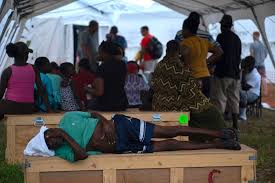
 This we did!
This we did!
 Prefabrication
Prefabrication

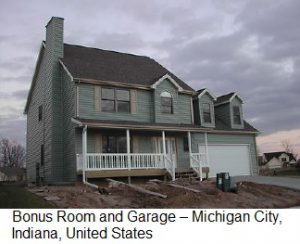

 The Go Lean book stresses that reforming and transforming the Caribbean economic engines must be a regional pursuit. This was an early motivation for the roadmap, as pronounced in the opening Declaration of Interdependence (Pages 12 – 13):
The Go Lean book stresses that reforming and transforming the Caribbean economic engines must be a regional pursuit. This was an early motivation for the roadmap, as pronounced in the opening Declaration of Interdependence (Pages 12 – 13): These Shantytowns are a disaster just waiting to happen… they have been very lucky so far that many persons have not been killed in any of these Shantytown fires. Not to mention the health hazard these places are to the many surrounding residences.
These Shantytowns are a disaster just waiting to happen… they have been very lucky so far that many persons have not been killed in any of these Shantytown fires. Not to mention the health hazard these places are to the many surrounding residences. That being said, we should also look at the BIG PICTURE of the immigration dilemma that we are now confronted with. That is the ECONOMIC IMPACT of this ‘vexing’ immigration situation. The old saying: ‘When life gives a ‘lemon’ make lemonade. Can we turn this problem ‘lemon’ into ‘lemonade’?
That being said, we should also look at the BIG PICTURE of the immigration dilemma that we are now confronted with. That is the ECONOMIC IMPACT of this ‘vexing’ immigration situation. The old saying: ‘When life gives a ‘lemon’ make lemonade. Can we turn this problem ‘lemon’ into ‘lemonade’? A Caribbean island – the Northern Bahamas island of Grand Bahama – just got hit with a once in a lifetime Category 5
A Caribbean island – the Northern Bahamas island of Grand Bahama – just got hit with a once in a lifetime Category 5 